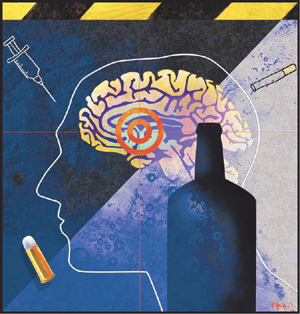Dealing with Pornography in Marriage (Part 1)
The Ultimate Question: What Do You Do?
(For purposes of this article on pornography in marriage the assumption is that it is the husband struggling with the addiction, but pornography addiction is growing rapidly among women as well.)
When you discover your spouse has been involved with pornography it can be traumatic, to say the least. Fortunately, you’re not alone. There are many, many people across the globe that have partners with sex addictions, which is why there are numerous resources and support groups to help.
LIFE Marriage Retreats does not treat addictions, but we are very experienced and effective in helping couples struggling with addiction to communicate in healthy ways and to rebuild trust which is essential for the recovery process. Here are some tips to help you find comfort and peace amidst the betrayal trauma you’re experiencing.
When you’re ready, talk to your spouse.
While you don’t need to know the minute details, it is important for you to know how often your spouse is viewing pornography. Is it every day? Once or twice a week? A few times a month? Knowing this will help you know how compulsive the addiction is and how much help your spouse needs to recover from this addiction. Talking frankly will help you both get on the path to healing and restored trust.
It can be so easy to let yourself wonder—what exactly was he viewing? What did the women look like? What’s the exact website he goes too? If you dwell on these questions and insist your spouse answer them, you’re only going to bring yourself more hurt. Don’t let yourself go down the “wondering” path of needing every detail. Not only are those details not necessary, they won’t help you heal. Ask the questions, such as the following, that will help you discover the root of the problem and why he’s going to pornography:
- What was your day like leading up to viewing the pornography?
- How were you feeling and why do you think you felt that way?
- When you’re upset, stressed, bored, depressed, etc., how do you best cope with those emotions?
- Do you notice when you’re the most tempted to view pornography?
Go to a support group.
Support groups aren’t just for those who have an addiction. There are actually support groups out there for the spouses affected by the addiction. Meeting with and connecting with people who have been where you can be healing, and it can help you know what to do in a situation that’s so difficult to navigate. Plus, these support groups are based on confidentiality and anonymity, which means you can feel safe and protected while you’re there.
Encourage your spouse to go to a sex addiction support group and/or to a qualified counselor experienced in addiction counseling. Regarding the support group, he will not only find strength and support from many others who have been where he’s been, he will also learn skills and gain tools he needs to help him deal with the emotions and behaviors that lead to viewing pornography. He may not want to or be willing to go these support groups, and you can’t force him to. All you can do is work on yourself and hope that your spouse, over time, will see that his behavior is hurting you and will then want to change. (End of part 1)


 families and marriages.
families and marriages.